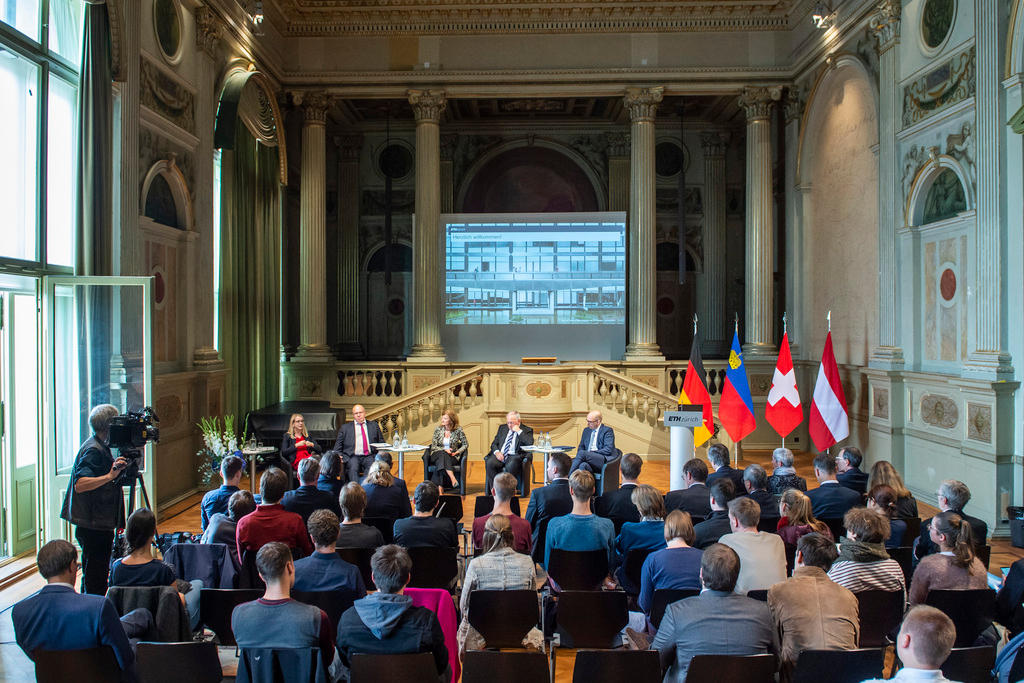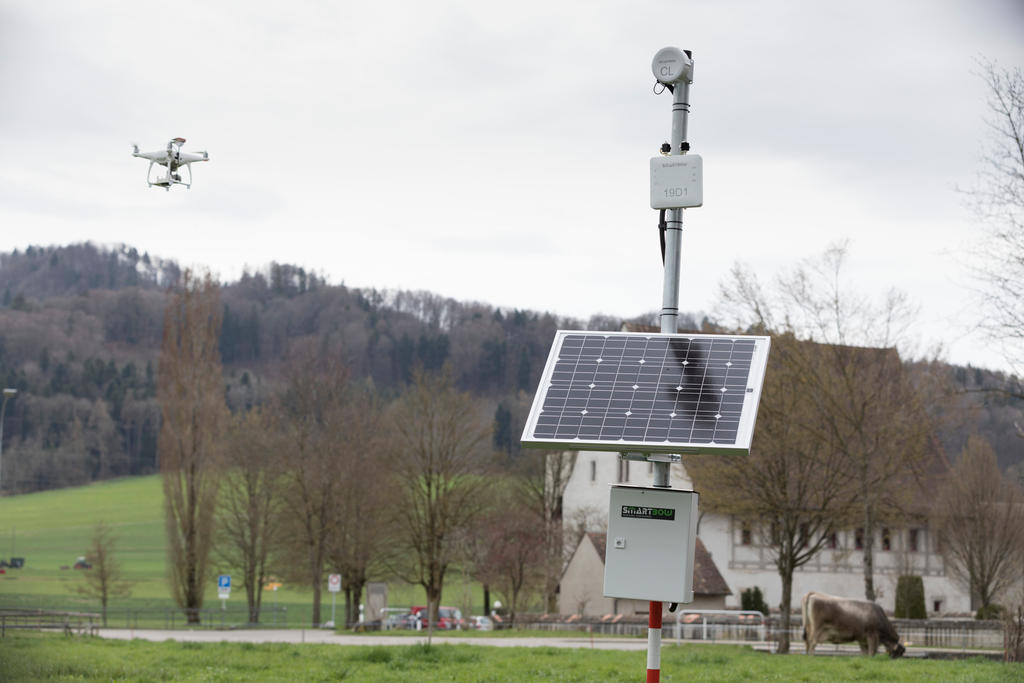Digital world gets its own open day

Switzerland has been holding its second “Digital Day”, showcasing to the public the opportunities and the challenges of digitalisation – in a country that is still a little suspicious of the concept.
“Switzerland is not a country of revolution but of evolution,” is how Sébastien Kulling, digitalswitzerlandExternal link director for the French-speaking part of the country, summed up the usefulness of Thursday’s Digital DayExternal link, a globally pioneering initiative from Switzerland.
With more than 70 partners on board (including Google, Swiss Federal Railways, Swisscom and swissinfo.ch’s parent company, the Swiss Broadcasting Corporation), the day was spread across 30 sites around the country, allowing the public to test, discover and reflect on innovations ranging from virtual reality to IT security.
Lagging behind
Founded in 2015, digitalswitzerland is made up of more than 125 companies, research institutions and public authorities. Its stated goal is to establish Switzerland as “as a leading international centre of digital innovation”.
The country is considered a world leader in innovation, but it is lagging behind when it comes to digital innovation. “We are behind in certain areas,” explained Kulling. “We are very fast when it comes to digitalisation, but we are not as fast as the United States, Singapore or Israel, for example.”
He points to the Global Competitiveness ReportExternal link of the World Economic Forum in Davos. Not only has Switzerland lost its top position in the global competitiveness list (after eight years in position 1, it has dropped to 4), it only manages position 24 for attitudes towards entrepreneurial risk and 19 for companies embracing risky or disruptive ideas.
Switzerland’s modest performance here can be explained in part by the complexity of its political organisation. The fact that there are 26 cantons, the federal state and the direct democracy system means that laws take a long time to get through, in a domain that needs to go fast.
“The Swiss are also very cautious,” Kulling said. “In spring, the Senate refused to ease the protection requirements for non-ionising radiation, a situation which is blocking the development of 5G.”
Well-connected after all
But this does not mean that Switzerland is a digitalisation desert – far from it. When it comes to being connected to the internet and using the web, the Swiss are on a par with their neighbours.
Some 93% of households have an internet connection, which puts the country five percentage points ahead of the European average. 91% of Swiss aged 16-74 surf the web at least once a week (of which 73% from a mobile device), which is seven percentage points below Iceland, the European champions at 98%.
In terms of the average person’s digital literacy, the Swiss rank in the middle in Europe. They are certainly well behind the class swots – essentially the Nordic countries – but are above the European Union average and their direct neighbours, as the graphic below shows.

In compliance with the JTI standards
More: SWI swissinfo.ch certified by the Journalism Trust Initiative





You can find an overview of ongoing debates with our journalists here. Please join us!
If you want to start a conversation about a topic raised in this article or want to report factual errors, email us at english@swissinfo.ch.